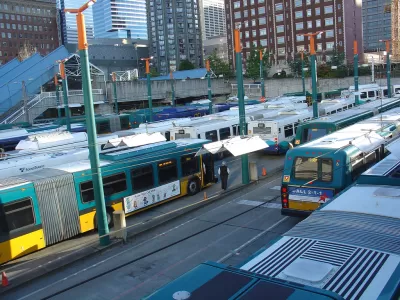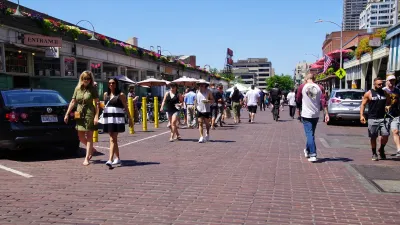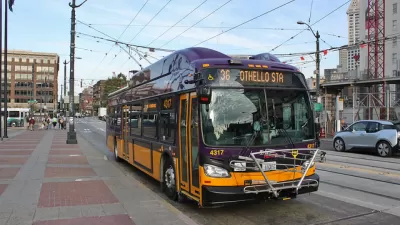The victory for homeless and very low-income transit riders is a reminder of the importance of grassroots organizing.

Last year, organizations in King County provided more than 1.4 million Metro tickets to homeless people, refugees, and other low-income people struggling to afford trips to shelters, job centers, and other crucial resources.
Metro's Human Services Ticket Program, which partially subsidizes tickets for human services agencies to distribute, launched 25 years ago after ongoing public demonstrations by the agencies and their clients. And in September, ongoing organizing once again motivated King County Council to unanimously move to strengthen the program.
Katie Wilson of Seattle's Transit Riders Union explains in the Seattle Transit Blog that rising housing costs and homelessness rates have drastically increased the need for tickets. But a cap on allocations has limited the number of tickets available, and fare increases have made even the discounted price too much for some organizations.
The problem may have continued to get worse, Wilson writes, if not for a dedicated grassroots effort to get the Council to address it. Now, Metro will raise the cap on ticket allocations and cut the price of tickets in half, as well as collaborate with other county stakeholders to fulfill "transit’s role in contributing to the social safety net for the lowest income residents."
In addition to more comprehensive local measures, Wilson turns an eye to big-picture solutions like taking on the State Legislature and integrating the region's transit system—noting:
Many of the hundreds of low-income people who have participated in struggles for affordable transit would love to take on these broader transformative issues, if only they didn’t have to be more immediately concerned about getting from A to B.
FULL STORY: Big Wins for Very Low-Income and Homeless Transit Riders

Alabama: Trump Terminates Settlements for Black Communities Harmed By Raw Sewage
Trump deemed the landmark civil rights agreement “illegal DEI and environmental justice policy.”

Planetizen Federal Action Tracker
A weekly monitor of how Trump’s orders and actions are impacting planners and planning in America.

Why Should We Subsidize Public Transportation?
Many public transit agencies face financial stress due to rising costs, declining fare revenue, and declining subsidies. Transit advocates must provide a strong business case for increasing public transit funding.

Understanding Road Diets
An explainer from Momentum highlights the advantages of reducing vehicle lanes in favor of more bike, transit, and pedestrian infrastructure.

New California Law Regulates Warehouse Pollution
A new law tightens building and emissions regulations for large distribution warehouses to mitigate air pollution and traffic in surrounding communities.

Phoenix Announces Opening Date for Light Rail Extension
The South Central extension will connect South Phoenix to downtown and other major hubs starting on June 7.
Urban Design for Planners 1: Software Tools
This six-course series explores essential urban design concepts using open source software and equips planners with the tools they need to participate fully in the urban design process.
Planning for Universal Design
Learn the tools for implementing Universal Design in planning regulations.
Caltrans
Smith Gee Studio
Institute for Housing and Urban Development Studies (IHS)
City of Grandview
Harvard GSD Executive Education
Toledo-Lucas County Plan Commissions
Salt Lake City
NYU Wagner Graduate School of Public Service





























